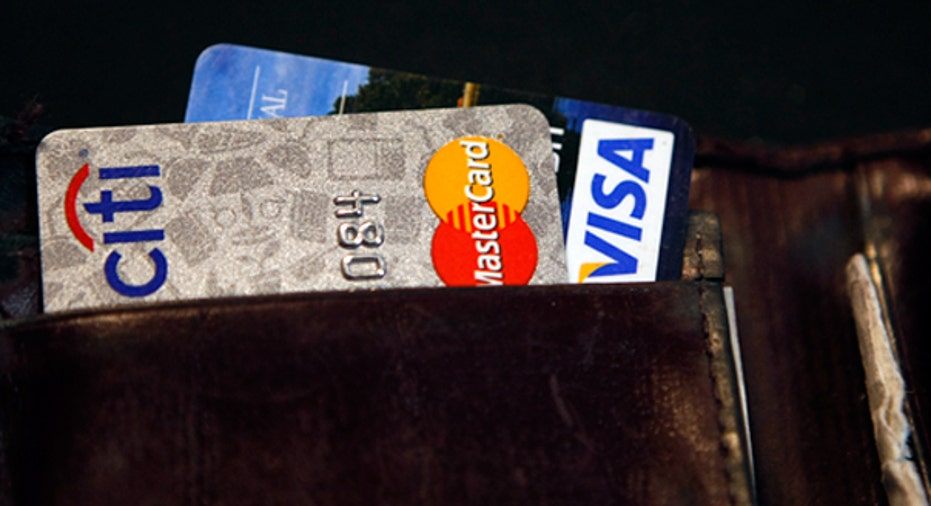Is a Widow Liable for Using Dead Husband's Card?

Dear Your Business Credit,
My late husband passed away in 2002. He had a business credit card in his name and the business name, with me as an authorized user. After his passing, I continued to use the credit card and also made payments. The past year has been bad for me financially, and I was no longer able to make monthly payments. Am I responsible for the debt on this card?
- Denise
Dear Denise,
I am sorry to hear about the loss of your husband and the financial troubles you have suffered in the past year. Getting the right information can help you make your situation more manageable.
I ran your question past Robert F. Brennan, an attorney in La Crescenta, Calif. He specializes in wrongful credit damage cases, as well as identity theft cases.
As he sees it, the card issuer could try to pursue you for the debt because of your continued use of the card. The issuer could argue that you took on the role of the primary cardholder by making charges on it after he died. You would have been able to make a stronger case if you had not used the card after your husband's passing.
"The credit card company will fight her all the way," he told me.
That doesn't mean you can't try to persuade the bank to file a claim against the estate, instead of going after you directly. There is a slim chance that this will deter the issuer from pursuing you directly for the debt, Brennan says. Bear in mind that if the issuer does use this option to collect the money, it will presumably affect you financially, too, since many of the assets of the estate likely belong to you.
Your challenges in paying this credit card hint at a larger one you seem to be facing. Many women suffer financial instability after a divorce or losing a spouse, and it appears that this is the case for you, too. Recent research by the Employee Benefit Research Institute found that while 7 percent of men live in poverty at age 65 or older, 13 percent of women do. And the risks of slipping into poverty are very high for women who are living solo. Nearly 21 percent of single women found themselves living in poverty at age 65 or older. In contrast, the poverty rate for people in couples at this age is 4.1 percent. Even women who don't fall into poverty often find that they are much worse off financially when they are no longer married.
There are many factors that contribute, such as loss of the spouse's income. If your husband put most of your family's assets into the business and you were not able to sell it for a good price after he passed away -- or discovered that there was no market for it -- this may have also left you without much of a nest egg.
Regardless, it is possible to turn things around -- and I would urge you to start getting the help you need to do so, so you don't have to cope with the challenges you are facing alone.
Consider sitting down with a financial planner to come up with a new strategy for managing your current resources. It can be hard to adjust to the loss of a spouse's income, especially if you are surrounded by friends who are living the same way you once did. A good planner can help you assess your lifestyle and make changes if needed. For instance, if you are living in the house that you and your spouse shared, downsizing to an apartment or condo may help you reduce your overhead so you can catch up on your bills. While you may be able to draw the same conclusions on your own, sometimes working with an objective third party can keep you motivated and on track. The Financial Planning Association has a tool to help you find a planner and tips on finding a financial planner you can trust.
What if you are already living modestly? Look for ways to increase your income so you can cover your expenses. If you are working now, you may want to consider starting a small side business or looking for a second, part-time job so you can get caught up on your debts. Many Americans are starting side businesses on sites like eBay, the crafts marketplace Etsy and airbnb, where you can make money by renting out rooms in your home occasionally.
If you're a displaced homemaker, you may need to find a job. That can be daunting without support. I'd suggest asking around at community colleges in your area to see if they offer a program to help displaced homemakers reenter the workforce or know about one. In some states, there are organizations that can help you. For instance New Jersey residents can turn to the Displaced Homemakers Network of New Jersey. Your state unemployment office or department of labor may also know if there is such a group in your state. It can be scary to try something new, and efforts like getting a job can take months. But you'll feel a much greater sense of control once you're able to pay your bills on time.
See related: What happens to credit card debt after death, Who's responsible for a deceased spouse's card debt?, Keeping business credit off of your personal record



















